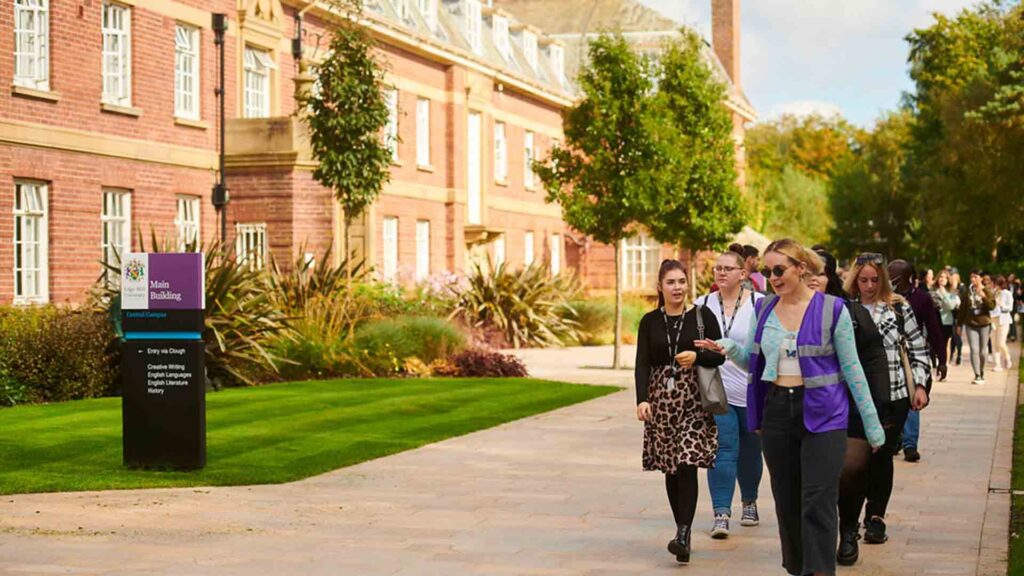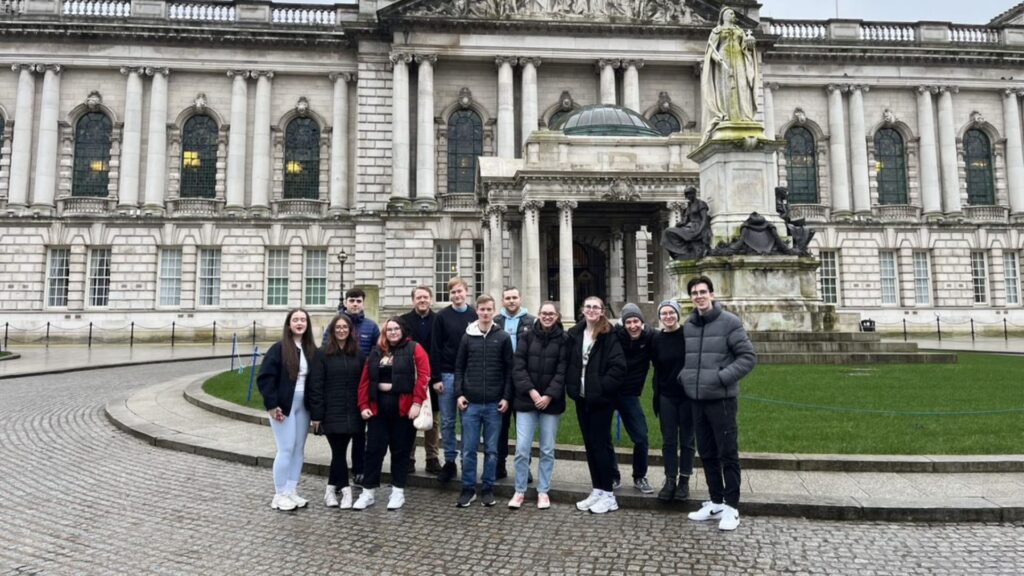The report, created by students from Edge Hill’s Politics Lab, surveyed over 100 young people aged 18-30 about their perceptions of the police force and what they think the police should prioritise.
They found that 72% of young people do not believe in the police anymore and 73% believe that the police force does not hold itself accountable nor does it implement correct disciplinary measures.
Many respondents commented that their trust in the police has been eroded by high profile cases of serving officers like David Carrick and Wayne Couzens committing serious violent crimes against women.
The findings highlighted a number of ways the police can restore trust, including tougher screening for new recruits, being more transparent in how cases are dealt with, hiring more women and providing more training on preventing abuse and misogyny.
Second year BA (Hons) History and Politics student Lewis Melville, from Liverpool, said: “The data we collected highlights how young people, particularly women, feel unsafe around the members of the police force. The new metropolitan commissioner clearly has a long way to go to restore trust in the wider community.”
Second Year BA (Hons) Politics and Criminology student Katie Taylor, from Bolton, said: “It is clear that students want change in the way the police force is run. We want to be able to trust them, which I hope we were able to highlight through our document.”
Programme Leader for Politics Paula Keaveney said: “At Edge Hill, we’re keen to give our politics students real-world experience of influencing policy and conducting original research. The policing priorities report they have produced for the Select Committee focuses on the views of young people and clearly shows that trust has been damaged by the repeated scandals reported in the news.”
The Select Committee chose to launch the policing priorities inquiry at a time when public confidence in the police is low. The Metropolitan Police Service, the country’s largest, is in special measures and so are five more forces in England including Greater Manchester, Cleveland, Gloucestershire, Staffordshire and Wiltshire.
The report also noted that the perceived focus of the police is anti-social behaviour, something reflected in calls from Lancashire Police and Crime Commissioner who believes that increasing the number of officers on the streets will increase trust in the police.
However, young survey respondents believe that the police need to change their focus away from anti-social behaviour and towards victim-based crimes like physical, sexual or verbal attacks and listening to the needs of local communities, especially disadvantaged or minority groups.
Second Year BA (Hons) Politics and Sociology student Alexander Woodhead, from Liverpool, said: “It’s clear that young people want a more connected police force in their community. One that reflects more contemporary values and changes in safeguarding practices and hiring policy needs to be made for this to occur.”
The full report can be read on the UK Parliamentary Committee website. The inquiry is ongoing and will lead to recommendations for the Government and the Police, for further information, view the full inquiry.
To discover more about courses at Edge Hill University, please visit ehu.ac.uk/study.
January 18, 2023



